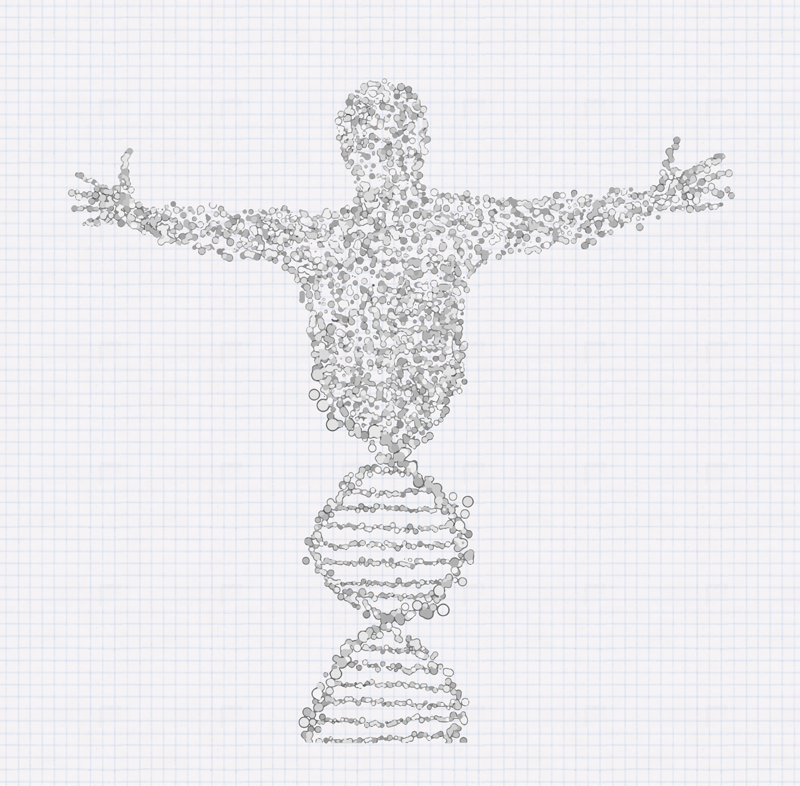Latest research animations
Self-assembly of spider silk
This gut microbe might protect against diabetes and reduce insulin resistance
NEW: One-way hydrogel guides motion of tiny worms!
Latest Posts
Proton and antiproton still seem identical
Microcolumns: elementary neuronal units that carpet the (mouse) brain
Jupiter’s volcano-powered auroral lights
Hepatoma (liver cancer) blocked by a sugar look-a-like
Random movements help color-detecting cells form the proper pattern
Visualizing chick-brain morphogenesis
Skin-like wearable electronics
Solar cells you can put in the wash
Learning and unlearning to fear: The two faces of noradrenaline
ּּּBigger oocytes = more mistakes
Superfly flight simulator helps unravel navigation in the brain
Skipping fatty acids could be recipe for schizophrenia
A gut-wrenching defense against parasitic worms
Memory retrieval needs a neuronal connecting flight
From egg to embryo
This nickel catalyst bats from both sides of the plate
New info about how chromosomes form
Tracking how stars grow up in a virtual playground
Protons are lighter than previously thought
Untangling depression in Huntington’s disease
Imaging whole-body cancer metastasis at the single-cell level
Meet the editors: the growing pains of scientific publishing
Carbon nanotubes, what are they good for?
Finding real rewards in a virtual world
RIKEN is looking for you
Promising mouse model for Ngly1 deficiency
Nihonium walk of fame
New rice fights off drought
Centennial RIKEN Research
Don’t know anything about RIKEN?
Blocking obesity with a protein-sugar combination
Robotic researcher to the rescue
RIKEN Research Winter Issue
The geometry of consciousness is a multi-dimensional math trip
RIKEN Research Fall Issue
Locating social memories in the brain
Big news in iPS cell transplants
In Japan, women in science seek allies, resources in push for gender equality
Measuring altitude — with clocks?
A researcher’s journey part 2: emotional memory and being human
Mathematical model predicts self-organized learning in real neurons
Deadly fungi beaten with fatty acid synthase inhibitor
A new and improved way to store hydrogen
A new alpha-particle treatment for multiple cancers
A researcher’s journey: from surfing to studying pain
The first drug treatment for brain aneurysms (in mice)
Simple but revolutionary modular organoids
Thoughts on the genetics of medicinal licorice
Apr
11

Cubes of brain tissue allow drug discovery without animals
Modeling the blood-brain-barrier with brains-in-a-cube allows drug testing without the need for animals.
Apr
3

Gut bacteria could help overcome milk allergy
Apr
2

Detecting pathogens: the evolution of plant immunity
Scientists find recognition receptors for plant growth and plant immunity that share a common evolutionary origin.
Mar
21

Genomic “butterfly effect” involving TADs explains risk for autism
De novo mutations in three-dimensional structures in the genome containing known ASD genes were found to be associated with ASD risk.
Mar
19

Heat used to transform antiskyrmions to skyrmions and back
Scientists discover a way to transform antiskyrmions to skyrmions and back using heat and magnetic fields.
Jan
23

Real webshooters? Synthetic spider silk spun from artificial gland
Scientists create a microfluidic device that spins artificial spider silk from spidroins proteins, duplicating silk’s complex molecular structure.















































